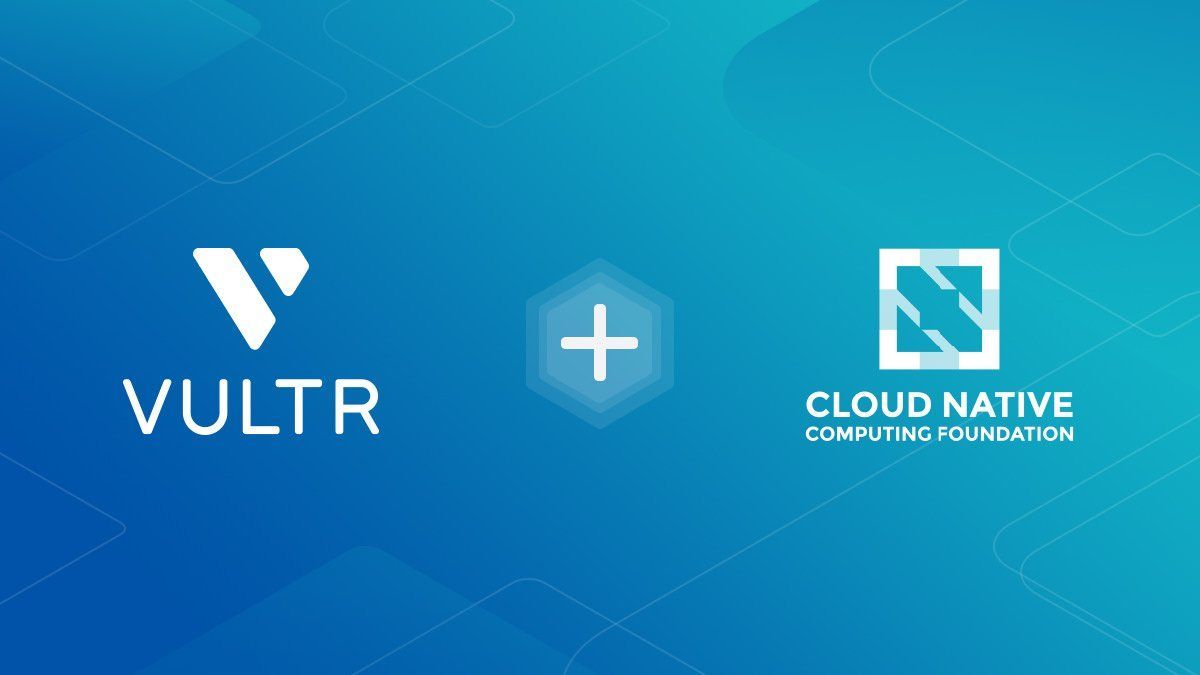We are pleased to announce Vultr's membership with the Cloud Native Computing Foundation (CNCF). Vultr is proud to support the CNCF's mission of sustaining and integrating open-source technologies like Kubernetes and Prometheus. Our membership with CNCF marks an important company milestone, as we continue to engage with and support the open source community to simplify the cloud.
"We believe in the CNCF mission of enabling open source technology," said David Dymko, Vultr's Cloud Native Technical Lead. "Our team is dedicated to making it as easy as possible for developers to work with Vultr, and to continually educate and advocate for developers' needs."
Vultr Kubernetes Plugins
Until Vultr Managed Kubernetes is launched, you can unlock the full benefits of Vultr as your backing cloud provider with the following two Kubernetes plugins:
The cloud controller manager lets you link your cluster into your cloud provider's API, and separates out the components that interact with that cloud platform from components that only interact with your cluster.
Vultr also integrates with external-dns: https://github.com/kubernetes-sigs/external-dns, which allows you to control DNS records dynamically via Kubernetes resources.
Read more about Vultr's Kubernetes tooling in our blog post: Kubernetes Khronicles: What Is Kubernetes.
Simplify the Kubernetes process
Vultr's run-your-own offering is available currently and the Vultr Kubernetes Engine (VKE) is coming soon. For now, provisioning a Kubernetes cluster for Vultr requires installation and configuration of Vultr-specific plugins. To simplify this process, we created Condor. Condor is a terraform module that provisions a Kubernetes cluster with the Vultr CCM and CSI, along with private networking and a few other key components.
Improve uptime with a load balancer
Vultr Load Balancers are also available for seamless transitions. Load balancers sit in front of your application and distribute incoming traffic across multiple instances of your application. To accommodate this traffic, you can deploy another instance of your e-commerce store. Now, to direct users between these instances of your store, you deploy a load balancer in front of them.
With the Vultr Load Balancer, you can:
- Scale your application: Deploy more instances to increase the amount of traffic your application can handle.
- Improve your uptime: The load balancer diverts traffic to healthy running nodes if any instance goes offline.
Read more at: Vultr Docs: Load Balancers
Automatically apply user data
Vultr is currently in the process of integrating with cloud-init. Cloud-init is a standard way for developers to customize their cloud instances. Since every instance starts out as an identical clone of every other instance, cloud-init enables the user data to give every cloud instance its personality, automatically.
In addition to cloud-init, we will also be looking to extend Vultr support into the following:
CNCF is committed to accelerating the adoption of cloud native technologies and improving the deployment experience. Through Vultr's membership, we look forward to contributing thought leadership for educational publications and events.
Looking for other tools? Tell us!
We're always looking for ways to empower developers to do what you do best. We want to hear your feedback. Are there other tools we can integrate with to make your life easier? Let us know.
Contact us or tweet @Vultr.
Additional Resources:

